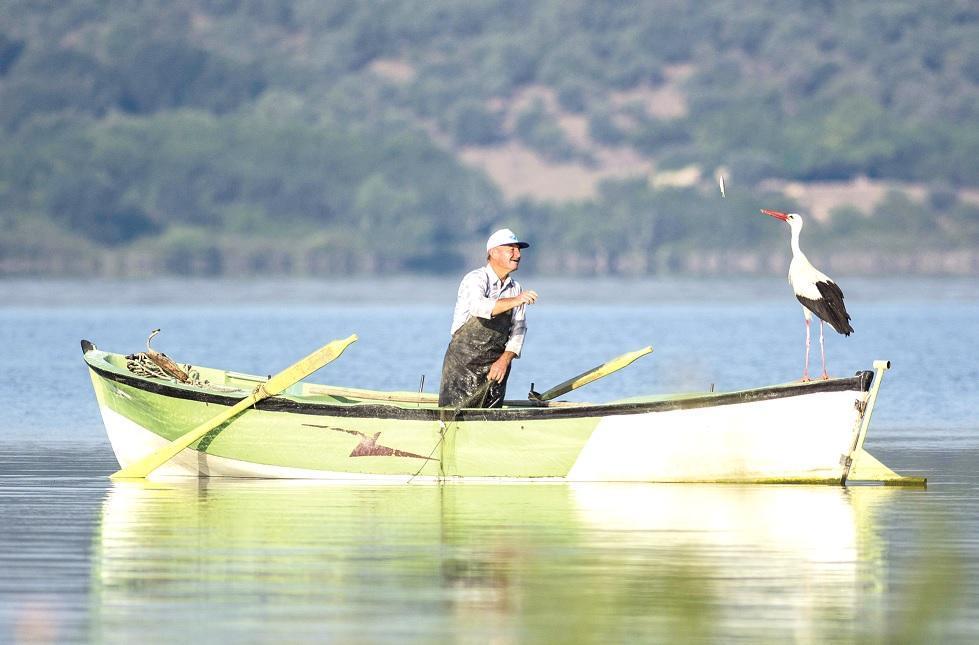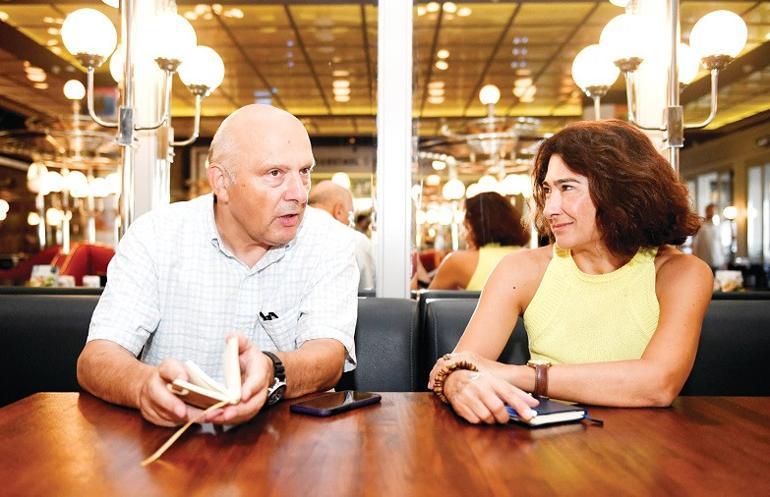
Overfishing has been depleting fish stocks, Professor Bayram Öztürk has warned, as the fishing season started with the end of the ban on Sept. 1. Measures against overfishing, especially in terms of preventing illegal fishing, should be taken alongside encouraging traditional family fishing, said Öztürk, the head of the Turkish Research Marine foundation.
Give us an overview about the situation in the seas surrounding Turkey.
Turkey is the country with the longest coastline on the Black Sea and the Mediterranean. There is no other country like that and this gives us a special responsibility. The Black Sea is one of the deepest seas in the world and 92 percent of it is anoxic, in other words only 8 percent of the water has oxygen and our fish come from that part. The Marmara Sea is like our bedroom. It is neither the Japanese nor the Polish who pollute it, we are the ones responsible so we need to protect this internal sea.
The Aegean and the Mediterranean are considered as one and there are 650 fish species. Of them 300 leave their eggs in the coastal areas, meaning they have to be protected from the human ecosystem. The Mediterranean also has many endemic species and the seagrasses are critical in mitigating climate change as they absorb carbon and produce oxygen.
Unfortunately, only 8 percent of our seas are marine protection areas, which is below the global target of 10 percent.
What are the other major threats?
The French Ferdinand de Lesseps got permission from the Ottomans in 1869 and opened the Suez Canal. As a result, species from the Red Sea started to enter the Mediterranean which now includes more than 1,000 alien species. These invasive alien species are a great threat to biodiversity, fishing and tourism.
Is there enough awareness about the invasive alien species in Turkey?
As NGOs, we try to increase the awareness and there is somehow an awareness in the state but this is not solely Turkey’s problem.
Yes but as we cannot close the Suez Canal…
But Egypt has been expanding the canal continuously. The depth that was 13 meters has reached 30 meters. The waters of the Red Sea and Indian Ocean are spilling to the Mediterranean like the Niagara Falls. In the past there were salt barriers (to stop alien species to pass); they no longer exist. Egypt, just like Turkey and other countries, is party to the convention on biological diversity. So it has to refrain from taking action that harms other countries’ fishing, biodiversity and economic situations. Egypt should have consulted other countries when widening the canal. Many countries have brought complaints against Egypt. Sixty percent of the fish caught in the Gulf of İskenderun are of Suez Canal origin.
On the other hand, another threat in our seas is overfishing which depletes fish stocks. In the past 80 percent of the fish were caught; whereas of the 630 tons of fish we have; half comes from aquaculture. That tells us that natural stocks are diminishing. We need to take measures against overfishing especially in terms of preventing illegal fishing.
Another very serious issue is pollution.
While Egypt could be blamed for expanding the Suez Canal, others can accuse Turkey of being among the biggest polluter in the Mediterranean in terms of plastic waste.
It is true that Turkey does not have a good track record on plastic waste. But there are also other countries with similar track record like Italy. This is not about who to blame. A fish or a sea turtle has no passport and we are all part of a convention to protect the Mediterranean, the Barcelona Convention signed in 1976. All parties have to protect against ship pollution, invasive aliens, and oil pollution. Our Environment Ministry has to be much more sensitive about it.

How polluted are the seas?
I cannot give you a correct figure. What we can say is that ports at some regions are much polluted. The Marmara Sea is, for instance, very polluted.
What is the prime cause behind pollution in Turkey?
Land-based pollution, in other words, sewage. We are short on water treatment. It is the main reason why the Marmara Sea is polluted as it is surrounded by dense industrial regions. The coasts of the Black Sea are less populated but we still have the litter problem.
Obviously the Marmara Sea is an internal sea and that factors in the pollution, but 30 million people live around Marmara and there are a lot of industrial plants.
In the past we could swim around the islands in the Marmara; now we have to go south to the Mediterranean. But in the future where will we go? The Maldives? This is not sustainable. This does not suit the world’s 17th biggest economy. It is obvious that the public authorities are not doing what they have to do.
Everybody says there is no money. We could set up a fund, charging the tourists coming to Istanbul, because they also pollute the sea and we could also charge the companies that have industrial plants in the Marmara region.
How come is there overfishing in Turkey when there is a fish ban throughout the summer?
Because of the populist approaches of politicians. In Turkey, there are 14,000 fishing boats, but that number has to be around 10,000. Excess boats need to be retreated from the seas. Traditional family-style fishing needs to be supported.
Overfishing is certainly not due to Turkish population diet habits?
Turkey consumes very little fish. But it varies according to regions. In the Black Sea region it is 25 kilo per person which is the EU average, 28 in İzmir but 1 kilo in the southeastern province of Bitlis.
But the real issue is obviously Turkey’s exports. Turkey currently exports $1 billion worth of fish. This was normally the target for 2023. But we reached that number last year. Consuming fish is becoming a biosecurity issue. Fish have more protein than lentil, for instance.
Science people globally are advising to consume fish. This is becoming a strategic issue.
Why do you think the government is not increasing to 10 percent marine protection areas?
The slow working of the bureaucracy. There are for instance no protected marine areas in Marmara Sea and Black Sea. The Environment Ministry is lax about the issue in general.